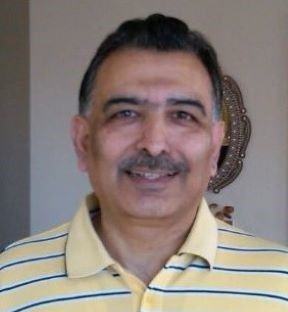
Rajiv Tandon, MD
Rajiv Tandon, MD
Rajiv Tandon, MD, Professor and Chair Emeritus at the Western Michigan University Homer Stryker College of Medicine, is an internationally reputed psychiatrist, educator, and researcher. Following a psychiatric residency at the University of Michigan in Ann Arbor (1984-87), he served there as a faculty member for 17 years (1987-2004) achieving tenure in 1992 and becoming a full professor in 1998. He served as the Chief of Psychiatry for the State of Florida from 2004-2009 and subsequently served as the Chief of the Psychiatry Service at the North Florida/South Georgia Malcolm Randall VA Medical Center and Professor/Vice-Chair at the Department of Psychiatry in the University of Florida from 2009-2019, before serving WMU Homer Stryker College of Medicine as Professor and Chair from 2019-2022.
Dr. Tandon has authored more than 400 scientific publications and given over 1500 national and international scientific presentations. He has received over 20 national and international awards for research and teaching. He has received the Exemplary Psychiatrist Award from the National Alliance for Mental Illness on three occasions (2009, 2012, and 2015). He has been the Editor-in-Chief of the Asian Journal of Psychiatry since 2016, over which time its Impact Factor has increased from 1.06 to the current 13.89. Additionally, he serves on the editorial board of several other international journals. He currently leads a project on “Reconceptualizing schizophrenia: Updating the construct”, with the top 50 international schizophrenia experts participating in a 3-phase endeavour (Schizophrenia Research 2022; Volume 242).
He was a member of the DSM-5 and DSM-5-TR workgroups on schizophrenia and related psychotic disorders (2006-2013 and 2019-2022, respectively). He is a Past-President of the Florida chapter of the National Alliance for Mental Illness and a Past-President of the Florida Psychiatric Society. His major areas of clinical and research interest are the neuropharmacology of schizophrenia, differences between typical and atypical antipsychotic agents, dimensions of schizophrenic psychopathology, neuroendocrine and polysomnographic abnormalities in schizophrenia, and the evidence-based treatment of schizophrenia and other major mental disorders. He has a deep passion for promoting the evidence-based practice of psychiatry and a strong commitment to guiding young psychiatrists into developing scientific-cum-humanistic best practices along with the ability to continually learn. An avid mentor, he considers his research training of several residents/fellows and junior faculty now in psychiatry leadership positions around the country as his most notable accomplishment.

